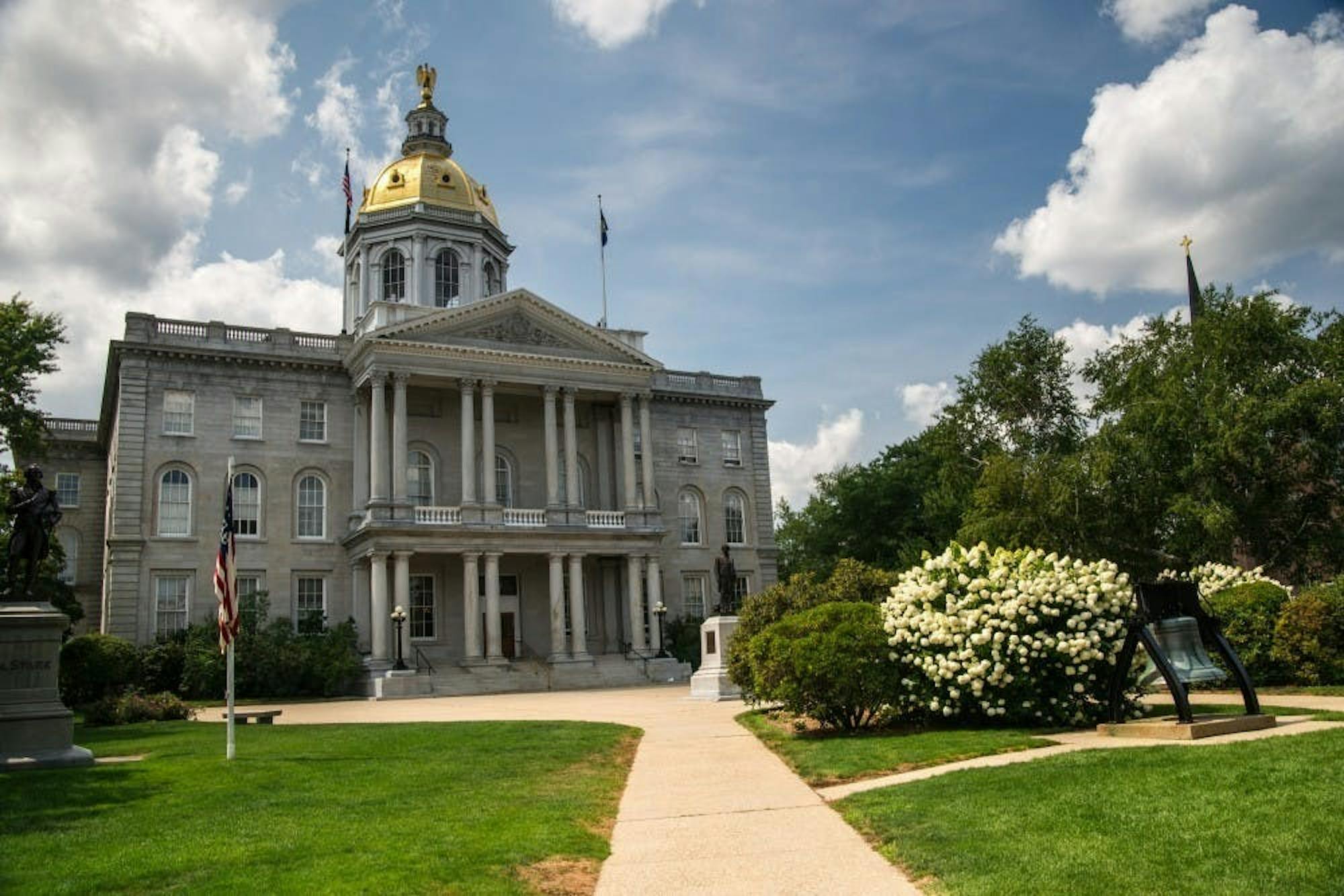The decision by New Hampshire Gov. Chris Sununu to exclude out-of-state college students from vaccine eligibility has raised practical and legal concerns.
While all New Hampshire residents over 16 years old will be eligible to register for a COVID-19 vaccine beginning April 2, college students from out-of-state are not considered permanent residents and will not “qualify for the vaccine,” Sununu said at a press conference on March 26.
Hanover town manager Julia Griffin noted that increased pressure on Sununu may compel him to change the policy. The New Hampshire College & University Council — a non-profit association of New Hampshire institutions of higher education that does not include Dartmouth — announced on Wednesday that it had begun discussions with Sununu to identify when all college students in New Hampshire can receive the vaccine.
During a State of the State forum hosted by the Greater Manchester Chamber on March 31, Sununu said that the state lacks the necessary supplies to vaccinate out-of-state college students because the federal government “doesn’t give [him] an allotment [of vaccines] based on out-of-staters.”
The Centers for Disease Control and Prevention website states that COVID-19 vaccines are made available to states “based on the number of people 18 years or older in the jurisdiction in proportion to the entire U.S. population” — a method of allotment that uses Census Bureau data.
Griffin said that because vaccines are distributed based on Census data — which counts students at their college residence — students should be eligible for the vaccine in the state that their colleges are located. She also noted that New Hampshire was one of two states, along with Mississippi, that has chosen not to vaccinate its out-of-state student population, which she said is “not something to be proud of.”
On March 30, Vermont Gov. Phil Scott announced that out-of-state college students in Vermont would not qualify for the state’s vaccine, even though many students had already been fully or partially vaccinated in the state, according to reporting from the Middlebury Campus student newspaper.
CEO of the conservative civil rights group Center for American Liberty Harmeet Dhillon ’89 said the policy may also violate the privileges and immunities clause of Article IV, Section 2 of the U.S. Constitution, which states that “citizens of each state shall be entitled to all privileges and immunities of citizens in the several states.”
She added that states are specifically prohibited from burdening the in-state economic activities of out-of-state residents. According to Dhillon, one could argue that students are engaging in economic activities when they come to Dartmouth and pay Dartmouth tuition. By requiring students to pay to travel out of the state to obtain medical treatment — an effective tax —New Hampshire may be burdening the economic activity of out-of-state students, she said.
“Governor Sununu’s discriminatory plan for vaccination violates the Privileges and Immunities Clause because it deprives out-of-state college students with economic interest in the state of their fundamental rights in New Hampshire, simply because of their out-of-state status,” Dhillon said.
Griffin argued that it is important to ensure college students are vaccinated for the health of the entire population.
“For the sake of the students and for everybody else in the community, it's really important to get students protected quickly and effectively,” she said.
Vaccinating college students in New Hampshire would also benefit the fiscal health of the community as businesses will feel safer in resuming normal operations, Griffin said.
Nigel Leeming, the owner of Murphy’s on the Green, said there is “no question” that widespread vaccination in New Hampshire will increase business. According to a March 29 post on the Town of Hanover’s website, businesses and facilities in Hanover will continue to operate under pre-existing restrictions until a “large percentage” of Hanover residents, including Dartmouth students, are vaccinated.
In an email statement on March 27, deputy communications director for Sununu Brandon Pratt wrote that vaccine supply is limited but eligibility may open up further if supply increases.
However, Griffin said claims of a vaccine shortage in New Hampshire are unfounded, referencing numerous unclaimed vaccine appointments on the state’s website.
She asserted that the motivation for the policy is largely political, noting that Sununu, a Republican, has historically attempted to stifle student voters.
“I think it's a political decision by [Sununu],” Griffin said. “[He wants to] communicate his dissatisfaction with the perception of the way students vote in New Hampshire.”
David Millman ’23, who is running for the Hanover Selectboard, also claimed that the vaccination policy has political motivations.
“It's pretty obvious,” Millman said. “If they make it so college students are not eligible to be vaccinated here, that leads to logically that students should not be allowed to vote here.”



